What is consciousness? In this podcast David Chalmers starts addressing this question by saying that “being conscious is when there is something it is like to be that being”. This argument was initially presented by an American philosopher Thomas Nagel in an influential paper “what is it like to be a bat”. This paper was first published in the Philosophical Review in 1974.
David Chalmers is an Australian philosopher and a cognitive scientist specializing in the area of philosophy of mind. He is professor of philosophy and a director of the Centre for Consciousness at the Australian National University. He is also professor of philosophy at New York University. In 2013, he was elected a Fellow of the American Academy of Arts & Sciences. In this podcast Chalmers discusses the nature of human consciousness, its place in nature, artificial intelligence, and the concept of singularity.
In his paper “Consciousness and its Place in Nature” Chalmers describes some aspects of consciousness as easy problems and then discusses the hard problem of consciousness. In this podcast Chalmers explains in detail this approach of describing the challenge of understanding consciousness. Chalmers discusses the easy problems of consciousness and the hard problem of consciousness. An intriguing question is would we ever be able to solve the hard problem of consciousness? Some consider it an unsolvable problem and they give two main reasons for this: (1) inability of our brain to process the complicated information that would lead to an understanding of consciousness, and (2) as we all are conscious and do not have the ability to observe consciousness from outside, we cannot solve this problem. Chalmers shares his views on these points.
Another question is does consciousness have boundaries? One view is that consciousness is a fundamental property of matter that exists at different levels, and is perhaps connected at different levels. At each subsequent level, it becomes collective, and more complex, consciousness for that level. For instance, perhaps sub-atomic particles are conscious, then perhaps atoms and molecules are conscious, and then we experience consciousness at human level. If we continue extrapolating, it can be said that consciousness exits at the universal level as well. This leads to another question: does the universe create consciousness that we experience, or the universe is just a physical and mechanical entity, and it is something in this universe, perhaps us, the human beings that create, and then experience, consciousness?
Chalmers also discusses the relevance, and irrelevance, of artificial intelligence to the phenomenon of consciousness. If we assume that consciousness is an emergent phenomenon – a property of system is said to be emergent if it is in some sense more than the “sum” of the properties of the system’s parts – then as the processing power of computers is increasing, can it be said that one day consciousness may emerge in machines. One fundamental question is “what happens when machines become more intelligent than humans”. Chalmers says, “One view is that this event will be followed by an explosion to ever-greater levels of intelligences as each generation of machines creates more intelligent machines in turn. This intelligence explosion is now often known as the “singularity””. In this podcast we discuss these questions in detail.
But is consciousness necessary; can a universe exist without consciousness? If we manage to make a machine, that can store and process information the way we store and process information, and if this machine can replicate our emotional behaviour as well, but it is not conscious, then a collection of such machines can live and function in a universe that does not have consciousness. Is it necessary to have consciousness in such a simulated world? A number of fascinating questions that arise at this point are:
- Will such machines live in a world that does not need consciousness? A world that can exist and function without consciousness.
- Will the machines of future be just super intelligent or will such machines have machines-consciousness?
- Is it possible that the consciousness that we experience is not real and it is just an illusion and is it possible that we are living in a simulation?
- Is it possible that in a universe where “they” have achieved singularity, perhaps “we” are artificially intelligent machines, living in a simulation, in a matrix?
Chalmers suggests in his presentations that there is more to consciousness than just physical processes in the brain and that neuroscience alone is not enough to understand consciousness. So how should research on consciousness be conducted? Using neuroscience scientists are trying to map human brain, and are trying to find neural correlate for all brain activities and for all experiences; will this research one day lead to the discovery of neural correlate of consciousness and will this / these neural correlate(s) of consciousness inform us where does consciousness originate and how does it functions? Chalmers touches upon these points in this podcast. Chalmers continues and addresses the questions that what type of research is required to get to a theory of consciousness – a theory that can explain relationships between objective data and relevant subjective experiences? Is there a need for a new framework and perhaps a different scientific and philosophical model to understand consciousness? Finally, I finish this podcast by asking David Chalmers what are major developments and breakthroughs that he envisages in his area of research in the near future.
Resources
Chalmers, David (2010). The Singularity: A Philosophical Analysis Journal of Consciousness Studies, , 17, 7-65
Chalmers, D. (1995). The Puzzle of Conscious Experience Scientific American, 273 (6), 80-86 DOI: 10.1038/scientificamerican1295-80
Nagel, Thomas (1974). What is it Like to Be a Bat Philosophical Review DOI: 10.1017/CBO9781107341050.014

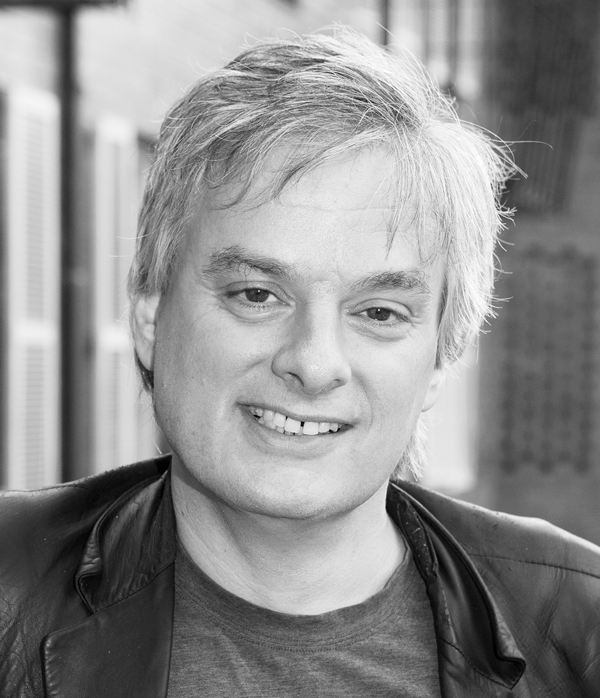
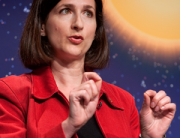
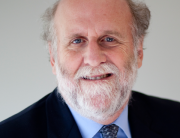
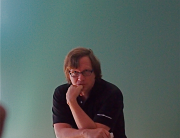

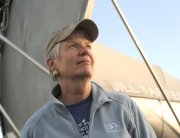
Connect With Us